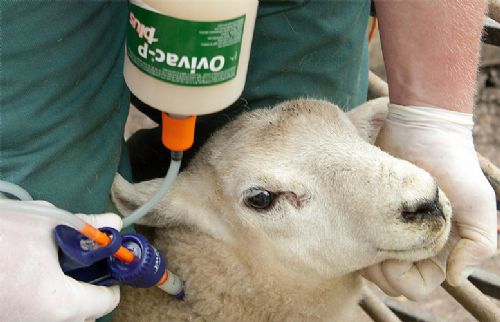
The warm and sunny March weather was a godsend for the many UK sheep units lambing during the month, but producers must not become complacent if they are to gain full value from the new season lamb crop.
"The weather has been great for the early spring lambers and generally it’s gone pretty well so far despite widespread worries about the impact of the Schmallenberg virus," says independent sheep consultant Lesley Stubbings.
"Early signs are that although we may not have had a bumper lamb crop, it’s a lot better than it could have been considering the disease concerns and the drought conditions prevailing around tupping time. With prices still firm, the aim now has to be to keep new season lambs healthy because they are so valuable. Losing lambs to easily preventable diseases such as pasteurellosis this summer is throwing money away.
"We also had a return to wintry conditions in many parts in early April and we could still have some wet and stormy weather, and sometimes this is all the stress it takes to cause a disease outbreak in unvaccinated lambs."
She points out that pneumonia continues to be a significant cause of death in unvaccinated lambs.
"The disease can have a variety of causes, but many outbreaks are caused by pasteurellosis. Pasteurella are a group of bacteria, with Mannheimia haemolytica and Bibersteinia trehalosi being the most important types to cause disease in sheep. Flock problems usually start with sudden deaths, often in relatively young lambs. But occurrence can be sporadic in individual sheep.
"If ewes are vaccinated properly in the run up to lambing then the lambs will also gain immunity from their colostrum, but this so called passive immunity only lasts for so long," she warns.
Lesley Stubbings reminds producers that the colostrum lambs receive from the ewe shortly after birth only gives them protection against pasteurella for 3-4 weeks, compared to up to 12 weeks for the clostridial diseases like pulpy kidney, braxy, blackleg and tetanus.
"This means that some early season lambs may already be unprotected and at real risk from these prevalent disease threats unless they are vaccinated themselves. Don’t undo all the good work," she urges.
